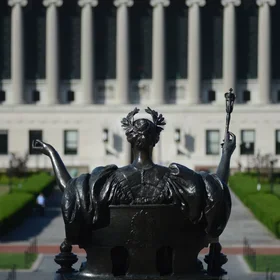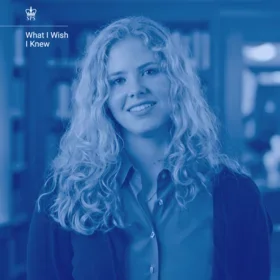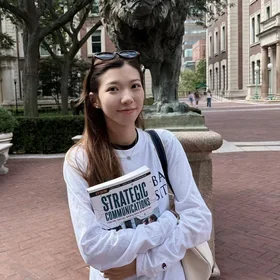by Sarah Oleng'
Strategic Communication student Troy Blackwell Jr. has started a new position as press director for the Peace Corps. Blackwell is also the founder and CEO of Ready for Change, a political action committee that, among other things, supports progressive candidates running for elected office. In 2021, Blackwell ran for New York City Council from the Bronx; he also worked in press roles during the Biden-Harris campaign in 2020. In his new role in the Peace Corps, Blackwell serves as the primary point of contact for news media and the public—domestically and overseas. In a recent interview, Blackwell talked about his experience at Columbia and how it prepared him for his new job at the Peace Corps.
Edited excerpts follow.
When did you join Columbia?
I joined Columbia in 2018 and took a sabbatical to go work for President Biden on his campaign. I intend to return next year to finish my degree through the Executive M.S. program. The program’s flexibility will enable me to go back and forth between New York and Washington, D.C.
Tell us about your role at the Peace Corps. What motivated you to join the Peace Corps, coming from a public relations agency?
At the Peace Corps, I am responsible for all the press that takes place domestically in the U.S. It is not entirely different—the biggest shift for me was more the environment rather than the work. While I was at PR and marketing firm Berlin Rosen, my focus was on social impact. That worked perfectly for me, as I believe in social impact and that we can change the world using tools like communications. Bridging those two has always been a part of my professional goals.
My responsibilities over the past ten years have been focused on media relations for political candidates and clients that made societal impact. My first job was as an intern at the White House when Obama was still the president. Since then, I have worked in similar roles such as at the New York City Council—a place that became a training ground for me.
What classes equipped you for your current role?
Strategic Communication Management with Cheryl Dixon was one of the most memorable classes I took. In her class, she gave out button pins that read “raising awareness is not an objective.” It was something that always stuck with me. When working in an agency, in-house, or at a nonprofit, people talk about communications, and their objective is always to raise awareness. I appreciated Dixon, who said awareness is not quantifiable as an objective, and objectives need to be quantifiable. I learned the importance of having numerical data to back up what I'm working toward or working on, which comes in handy particularly often in political communication.
What do you hope to achieve when you resume the program?
I am interested in the business side of communications. I want to understand how the communications industry is meeting the moment and changing business plans. For example, Edelman public relations recently launched a Global Gen Z lab, a data hub dedicated to generational insights. I think we will see a shift in how consumers engage with products and how people engage with news. Learning about the changing landscape with a generational divide would be interesting. And so how businesses meet that moment, I think, is going to be important.
Learn more about the Strategic Communication program.


